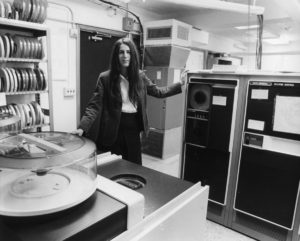As women increasingly rise to the to the top of the corporate ladder in traditionally male dominated fields such as technology, Judy Faulkner has been an idol for a growing number of female CEOs across the world. Faulkner, now age 73, leads one of the nation’s most influential companies, which provides technology for health record keeping.
What makes Faulkner particularly special is not only her ranking on Forbes as number six on the list of America’s most successful self-made women and the most successful female founder of a technology company, but the means to which she got her idea off the ground. The computer engineer and longstanding software CEO has never gone the traditional route, and attributes much of her company’s sweeping success to her unique style of leadership. Faulkner strictly follows her own logic, never doubting herself whether or not her decisions are in line with conventional wisdom.
From a modest upbringing and as a self-described “nerd,” Faulkner received her bachelor’s degree in mathematics from Dickinson College in Carlisle, Pennsylvania. It was at the University of Wisconsin-Madison, where Faulkner went to to pursue a master’s degree in computer sciences, where she became enthralled with one of her courses on the role of computers in medicine.
“Math, in my mind, is truth. Computer science and engineering are what works. It’s very interesting to put the two together.”
Now called Epic Systems, the company that reported $2.5 billion in revenues in 2016 was launched out of the basement of an apartment building in 1979 with just $70,000 bootstrapped from Faulkner’s own funds, alongside backing from her family and colleagues. Human Services Computing began developing computerized on-call scheduling for physicians, powered by Faulkner and her two assistants.
“The University of Wisconsin asked me to build a system that would keep track of information over time. They wanted to be able to define their own data elements, define their own data screens and collect clinical information. That’s how I got started creating Epic.”
Just as Faulkner avoided raising capital from private equity firms and venture funds, she decided that taking her company public was not in line with her vision. Instead, she donated most of her Epic shares to a charitable fund that keeps the company privately held. Faulkner has suggested that privately held companies are able to treat their customers and employees better, instead of prioritizing shareholders.
The female founder’s off the beaten path style quietly propelled Epic to become an industry powerhouse. Yet the most successful population health company is nothing close to a household name. The firm’s low profile reflects the nature of its CEO. The company which opted for an old Victorian house instead of a sleek, modern office building is headquartered away from the Silicon Valley giants and tech journalists in Verona, WI. Epic’s early customers, including Kaiser Permanente, also helped keep its stunning growth under wraps as they were benefiting from a serious competitive advantage.
A mere 1% of Epic’s workforce goes to sales, while the company supports the medical records of over half of the U.S. population and is used by top medical centers including Johns Hopkins and Mayo Clinic. The well-known MyChart application, which helps patients access their medical information, is an Epic product. The global firm, with offices in five countries and over 9,000 employees, doesn’t abide by any internal budgeting.
“Our philosophy is, if you need it, buy it. If you don’t need it, don’t buy it. We teach people how to judge things appropriately and make the right decisions.”
As one would imagine, Faulkner doesn’t care much for things such as dress codes. Of utmost importance at Epic is a culture of working hard and loving the work so that one can ultimately perform it better.
“High heels hurt. Stockings — stockings are probably like ties. They constrain your thinking,” said Faulkner in a recent interview with the Cap Times. “So a lot of it was just like, ‘I can't work this way’ rather than much thinking about defying tradition.”
When receiving potential customers for meetings, the CEO opts for enthusiasm over stress.
“I often don't think of this as, ‘Oh, this is stressful.’ I think of it as, ‘Whether they choose us or whether they don't choose us, I want to have fun meeting them. I want to learn who they are. I want to learn what they do.”
Faulkner, with a net worth of $2.6 billion in July of 2017 according to Forbes, signed the Giving Pledge in 2015, promising to donate 99% of her fortune to philanthropic causes within her lifetime.
“The work of my life has been to develop software that would help keep people well and help sick people get better... I never had any personal desire to be a wealthy billionaire.”
























